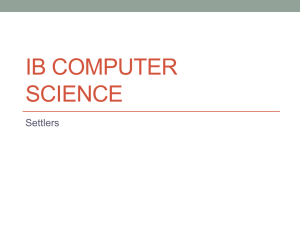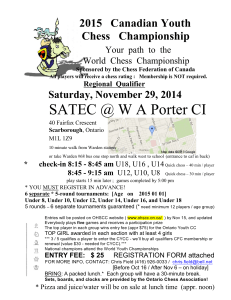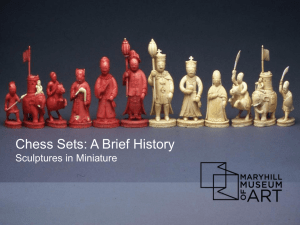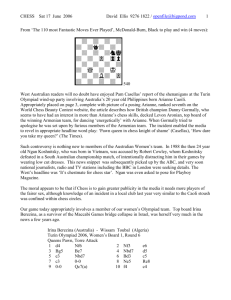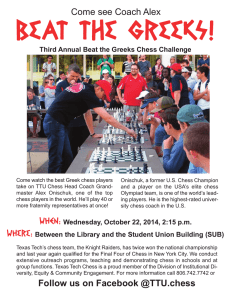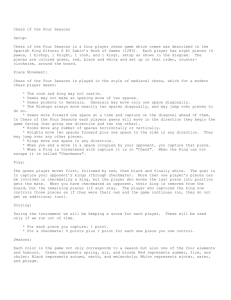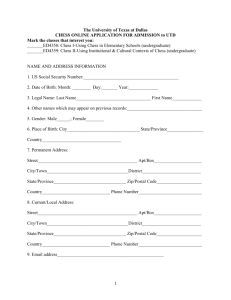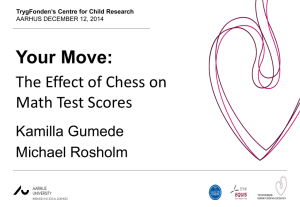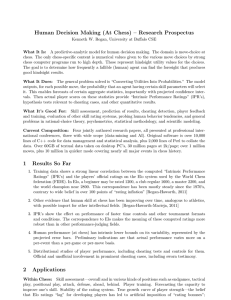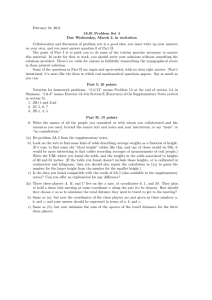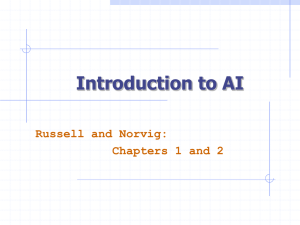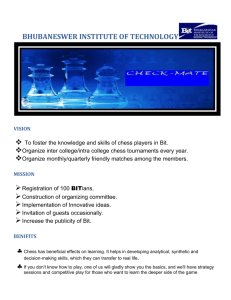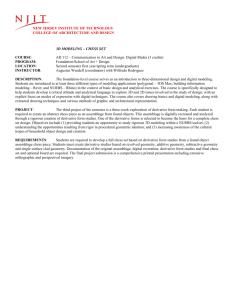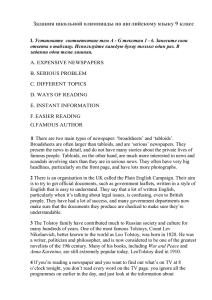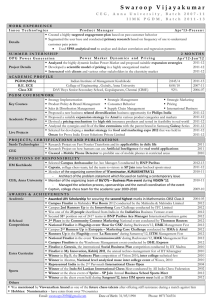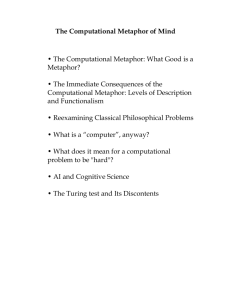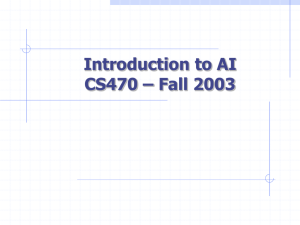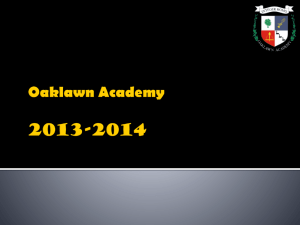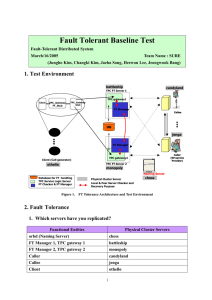Honors Thesis Proposal
advertisement
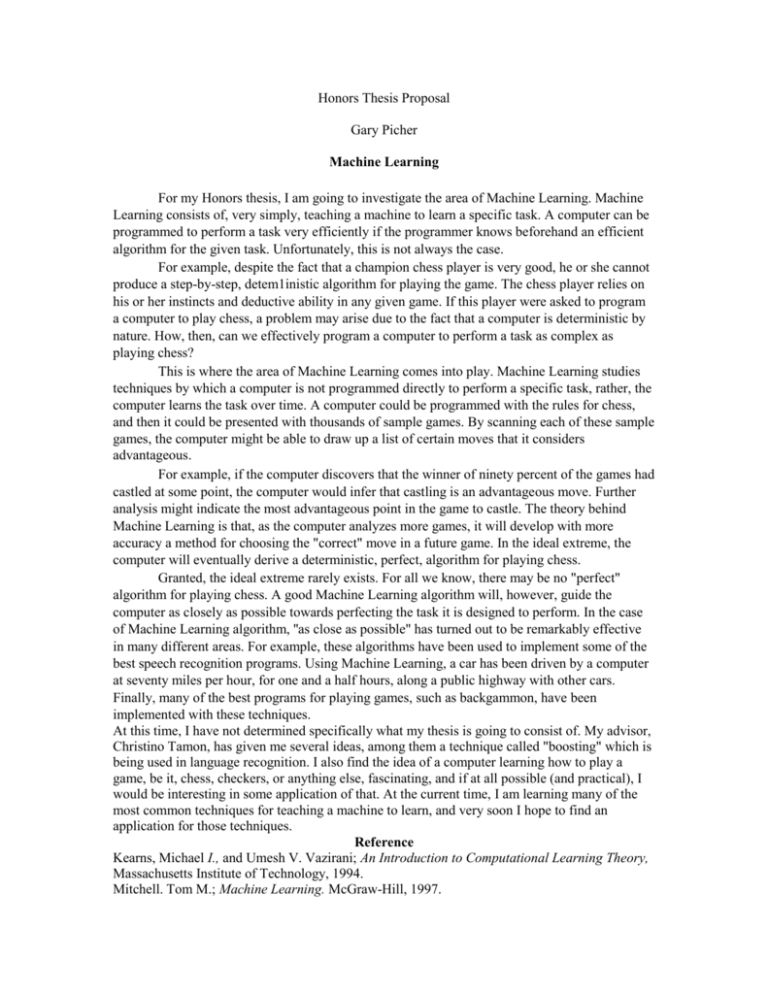
Honors Thesis Proposal Gary Picher Machine Learning For my Honors thesis, I am going to investigate the area of Machine Learning. Machine Learning consists of, very simply, teaching a machine to learn a specific task. A computer can be programmed to perform a task very efficiently if the programmer knows beforehand an efficient algorithm for the given task. Unfortunately, this is not always the case. For example, despite the fact that a champion chess player is very good, he or she cannot produce a step-by-step, detem1inistic algorithm for playing the game. The chess player relies on his or her instincts and deductive ability in any given game. If this player were asked to program a computer to play chess, a problem may arise due to the fact that a computer is deterministic by nature. How, then, can we effectively program a computer to perform a task as complex as playing chess? This is where the area of Machine Learning comes into play. Machine Learning studies techniques by which a computer is not programmed directly to perform a specific task, rather, the computer learns the task over time. A computer could be programmed with the rules for chess, and then it could be presented with thousands of sample games. By scanning each of these sample games, the computer might be able to draw up a list of certain moves that it considers advantageous. For example, if the computer discovers that the winner of ninety percent of the games had castled at some point, the computer would infer that castling is an advantageous move. Further analysis might indicate the most advantageous point in the game to castle. The theory behind Machine Learning is that, as the computer analyzes more games, it will develop with more accuracy a method for choosing the "correct" move in a future game. In the ideal extreme, the computer will eventually derive a deterministic, perfect, algorithm for playing chess. Granted, the ideal extreme rarely exists. For all we know, there may be no "perfect" algorithm for playing chess. A good Machine Learning algorithm will, however, guide the computer as closely as possible towards perfecting the task it is designed to perform. In the case of Machine Learning algorithm, ''as close as possible" has turned out to be remarkably effective in many different areas. For example, these algorithms have been used to implement some of the best speech recognition programs. Using Machine Learning, a car has been driven by a computer at seventy miles per hour, for one and a half hours, along a public highway with other cars. Finally, many of the best programs for playing games, such as backgammon, have been implemented with these techniques. At this time, I have not determined specifically what my thesis is going to consist of. My advisor, Christino Tamon, has given me several ideas, among them a technique called "boosting" which is being used in language recognition. I also find the idea of a computer learning how to play a game, be it, chess, checkers, or anything else, fascinating, and if at all possible (and practical), I would be interesting in some application of that. At the current time, I am learning many of the most common techniques for teaching a machine to learn, and very soon I hope to find an application for those techniques. Reference Kearns, Michael I., and Umesh V. Vazirani; An Introduction to Computational Learning Theory, Massachusetts Institute of Technology, 1994. Mitchell. Tom M.; Machine Learning. McGraw-Hill, 1997.
